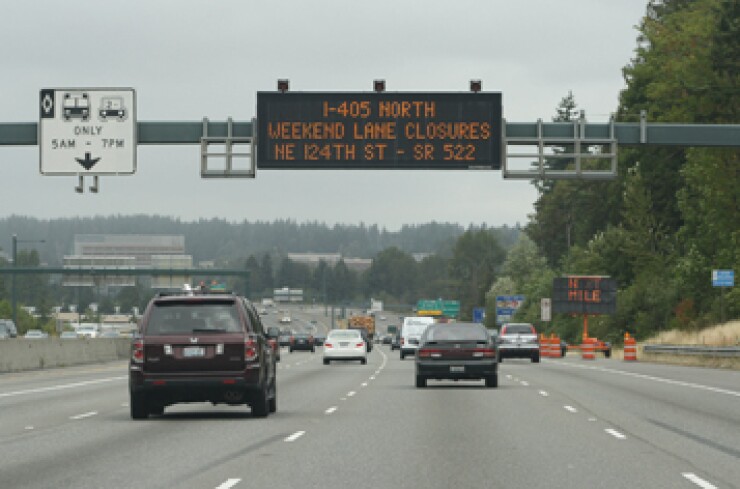
DALLAS -- The perceived lack of public support for a higher federal gasoline tax may be a myth, the Mineta Transportation Institute found in the latest of its ongoing series of annual opinion polls.
The 2015 poll, its sixth, found that a 10 cent per gallon increase in the 18.4 cent federal tax would be acceptable to 71% of the respondents if the newly generated revenues were dedicated to road maintenance. But the support level for such an increase falls to only 31% if the new revenue goes to overall transportation system improvements, according to the survey of more than 1, 500 adults selected randomly on a nationwide basis.
"Although support levels are not universally high, they are often higher than one might expect given the frequent pronouncements in the news media that the public simply will not tolerate an increase in the gas tax rate," said Asha Weinstein Agrawal, director of the MTI National Transportation Finance Center at California's San José State University.
Americans would be willing to pay a higher gasoline tax to fund transportation infrastructure if they knew it would go to specific projects, she said.
"This survey shows that significant majorities want the government to provide better transportation infrastructure, are willing to pay for improvements, and want gas tax revenue spent on public transportation as well as on roads and highways," Agrawal said.
More than 60% of the respondents agreed that gasoline tax revenues should help fund public transit systems, she said.
A favorite option in the 2015 poll would be a national sales tax of 0.5% devoted to transportation infrastructure. The sales tax drew support from 55% of respondents, making it more popular than either a gas tax increase of 10 cents with a vague goal of system improvements that was favored by 31% of the respondents, or a vehicle-miles-traveled fee of 1 cent per mile supported by 24%.
Congress could consider several proposals to raise the federal gasoline tax when it returns from recess next week, but Republican leaders, including House Speaker John Boehner, R-Ohio, Senate Majority Leader Mitch McConnell, and Rep. Paul Ryan, chairman of the House Ways and Means Committee, have ruled that out.
H.R. 1846 sponsored by Reps. Jim Renacci, D-Ohio, Bill Pascrell, D-N.J., Reid Ribble, R-Wis., and Dan Lipinski, D-Ill., would raise federal fuel taxes with an immediate adjustment for inflation -- a 12 cent per gallon increase.
Rep. Earl Blumenauer, D-Ore., offered H.R. 680 earlier this year to raise the gas tax by 15 cents over three years.
Sen. Tom Carper, D-Del., is sponsoring a bill, S. 1994, to raise fuel taxes by 16 cents per gallon over four years.
H.R. 2971, introduced by Rep. Tom Rice, R-S.C., in July, would offset a 10 cent per gallon increase with an income tax credit of $130 per year.
The federal gasoline tax and other levies dedicated to the Highway Trust Fund generate about $40 billion annually, but current federal transportation funding is more than $53 billion per year. Congress has transferred $73 billion of general revenues into the HTF since 2008 as gasoline tax revenues failed to keep up with expenditures.
The latest $8.1 billion infusion included in the 90-day funding extension approved by Congress in late July that is expected to keep the HTF solvent through mid-December.
The six-year transportation bill adopted by the Senate before the August recess would provide $273 billion for highways and $59.3 billion for transit, but it is fully funded for only the first three years.





